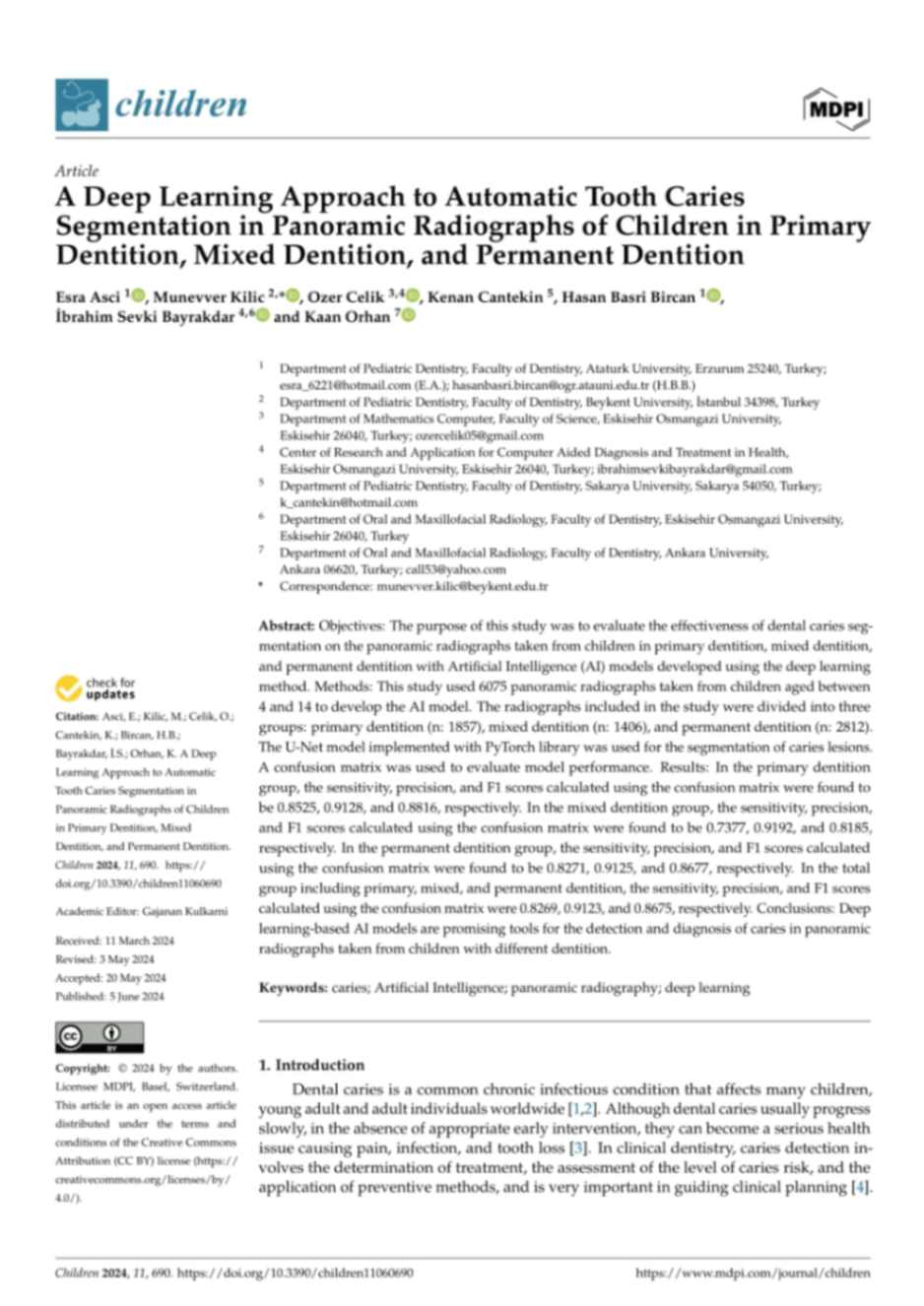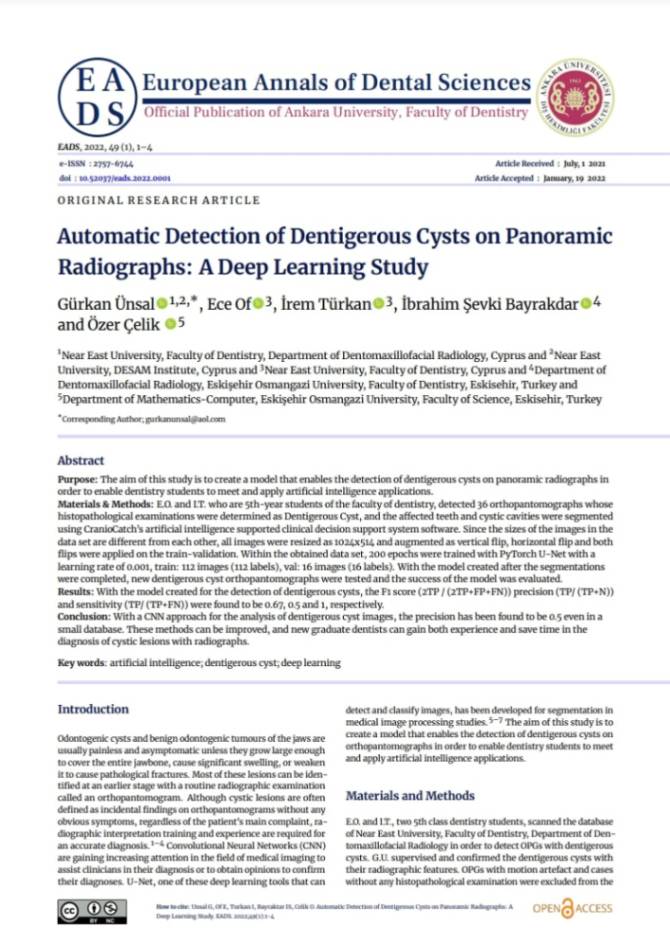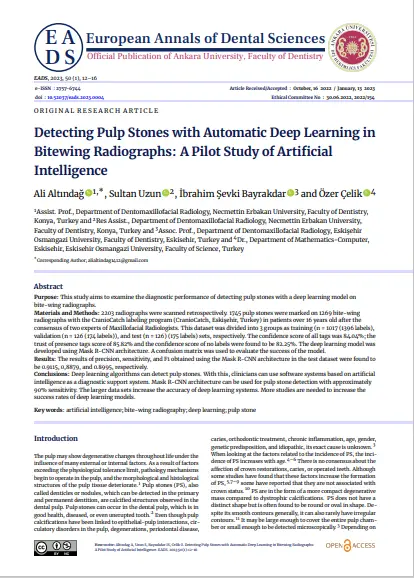A Deep Learning Model for Idiopathic Osteosclerosis Detection on Panoramic Radiographs
Introduction
The study investigates the performance of a deep learning model for detecting idiopathic osteosclerosis (IO) in panoramic radiographs. It highlights the potential of artificial intelligence (AI) to enhance diagnostic accuracy and reduce the workload of dental professionals.
Methodology
- Data Collection: The study utilized 493 anonymized panoramic radiographs, which were annotated by experienced oral and maxillofacial radiologists. The images were divided into four regions for focused analysis.
- Model Development: The deep learning model was based on the GoogLeNet Inception v2 architecture, implemented using the TensorFlow library. The model was trained over 200,000 epochs on a dataset split into training, validation, and test groups.
- Performance Metrics: The model's performance was evaluated using a confusion matrix, calculating sensitivity, precision, and F1 score based on true positives, false positives, and false negatives.
Results
- The AI model successfully detected 50 out of 57 IOs in the test images, resulting in a sensitivity of 0.88, precision of 0.83, and an F-measure of 0.86. These results indicate a promising capability for the model in accurately identifying IO on panoramic radiographs.
Discussion
- The study discusses the implications of using AI in dental diagnostics, emphasizing the potential for standardizing image interpretation and improving diagnostic accuracy. It also notes the limitations of the current study, such as the focus solely on IO and the need for a more diverse dataset that includes other hypersclerotic lesions.
Conclusion
The findings suggest that deep learning-based AI algorithms can effectively detect idiopathic osteosclerosis in panoramic radiographs, potentially transforming diagnostic practices in dentistry by reducing the workload for practitioners and enhancing the accuracy of diagnoses.
Future Directions
The study calls for further research to expand the dataset to include various types of radiopaque lesions and to explore the model's application in differential diagnosis and follow-up of IO.
Ethical Considerations
All procedures were conducted in accordance with ethical standards, and informed consent was obtained from participants involved in the study.
Funding and Contributions
The research was supported by Eskisehir Osmangazi University, with contributions from multiple authors in various capacities, including literature review, data acquisition, and manuscript writing.
I Want to Write a Scientific Research Project
CranioCatch is a global leader in dental medical technology that improves oral care in the field of dentistry. With AI-supported clinical, educational, and labeling solutions, we provide significant improvements in the diagnosis and treatment of dental diseases using contemporary approaches in advanced machine learning technology.
CranioCatch serves thousands of patients with dental health issues worldwide every day with its innovative technologies. That’s why we eagerly look forward to meeting our valued dentists who wish to work in the field of 'Scientific Research in Dentistry'.



 Contact Us
Contact Us

